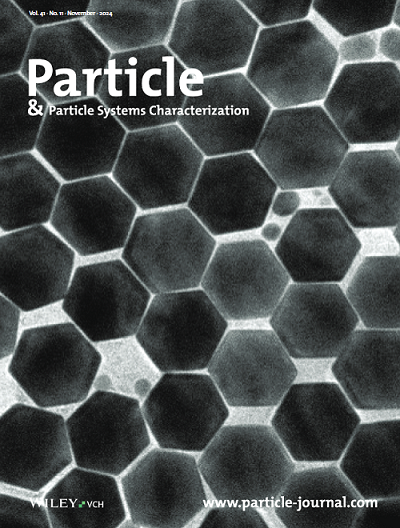掺杂二氧化钛的 CD 作为有效的 CT-DNA 粘合剂:通过绿色合成的新型荧光探针
IF 3
4区 材料科学
Q3 CHEMISTRY, PHYSICAL
引用次数: 0
摘要
碳点(CD)属于零维碳基纳米材料,由于其广泛的应用领域,从电子工业到医疗保健领域,碳点已引起人们的极大兴趣。本研究采用一种简便、廉价的方法,通过一步水热法从一种名为 Justicia Wynaadensis 的潜在药用植物中合成绿色发光碳点(J-10)。通过加入从绿色合成薰衣草叶中提取的 TiO2 纳米粒子,制备出 CD 的纳米复合材料(JT-10)。通过 X 射线衍射光谱(XRD)、透射电子显微镜(TEM)、拉曼分析、X 射线光电子能谱(XPS)、傅立叶变换红外技术(FTIR)、紫外-可见光谱、光致发光(PL)、荧光或 PL 寿命分析对 J-10 和 JT-10 进行了进一步表征。合成光盘的平均尺寸为 1.85 nm,在 320 nm 处显示出与激发相关的荧光性质。根据计算,J-10 和 JT-10 的 PL 寿命分别为 5.80 和 2.84 ns。合成的材料具有这些独特的光学特性和生物相容性,适合研究它们与 DNA 的结合亲和力和相互作用机制。在 DNA 结合研究中使用 JT-10 有助于开发可持续的高效纳米材料,应用于生物传感器、药物输送和基因治疗。本文章由计算机程序翻译,如有差异,请以英文原文为准。
Titania Doped CDs as Effective CT‐DNA Binders: A Novel Fluorescent Probe via Green Synthesis
Carbon dots (CDs), which belong to the class of zero‐dimensional carbon‐based nanomaterials, have garnered significant interest owing to their wide array of applications spanning from the electronics industry to the healthcare sector. This work employs a facile, inexpensive approach to synthesize green luminescent carbon dots (J‐10) from a potential medicinal plant named Justicia Wynaadensis by the one‐step hydrothermal method. A nanocomposite (JT‐10) of the CDs is prepared by adding TiO2 nanoparticles derived from green synthesis of Lavandula leaves. The J‐10 and JT‐10 are further characterized by X‐ray Diffraction spectroscopy (XRD), Transmission Electron Microscopy (TEM), Raman analysis X‐ray Photoelectron Spectroscopy (XPS), and Fourier transform infrared techniques (FTIR), UV–vis spectroscopy, Photoluminescence (PL), and Fluorescence or PL lifetime analysis. The average size of synthesized CDs is 1.85 nm and exhibits an excitation‐dependent fluorescence nature at 320 nm. PL lifetime analysis of J‐10 and JT‐10 is calculated to be 5.80 and 2.84 ns respectively. Offering these unique optical properties and biocompatibility, the synthesised material is suitable for investigating their binding affinity and interaction mechanisms with DNA. The use of JT‐10 in DNA binding studies contributes to the development of sustainable and efficient nanomaterials for applications in biosensors, drug delivery, and gene therapy.
求助全文
通过发布文献求助,成功后即可免费获取论文全文。
去求助
来源期刊

Particle & Particle Systems Characterization
工程技术-材料科学:表征与测试
CiteScore
5.50
自引率
0.00%
发文量
114
审稿时长
3.0 months
期刊介绍:
Particle & Particle Systems Characterization is an international, peer-reviewed, interdisciplinary journal focusing on all aspects of particle research. The journal joined the Advanced Materials family of journals in 2013. Particle has an impact factor of 4.194 (2018 Journal Impact Factor, Journal Citation Reports (Clarivate Analytics, 2019)).
Topics covered include the synthesis, characterization, and application of particles in a variety of systems and devices.
Particle covers nanotubes, fullerenes, micelles and alloy clusters, organic and inorganic materials, polymers, quantum dots, 2D materials, proteins, and other molecular biological systems.
Particle Systems include those in biomedicine, catalysis, energy-storage materials, environmental science, micro/nano-electromechanical systems, micro/nano-fluidics, molecular electronics, photonics, sensing, and others.
Characterization methods include microscopy, spectroscopy, electrochemical, diffraction, magnetic, and scattering techniques.
 求助内容:
求助内容: 应助结果提醒方式:
应助结果提醒方式:


